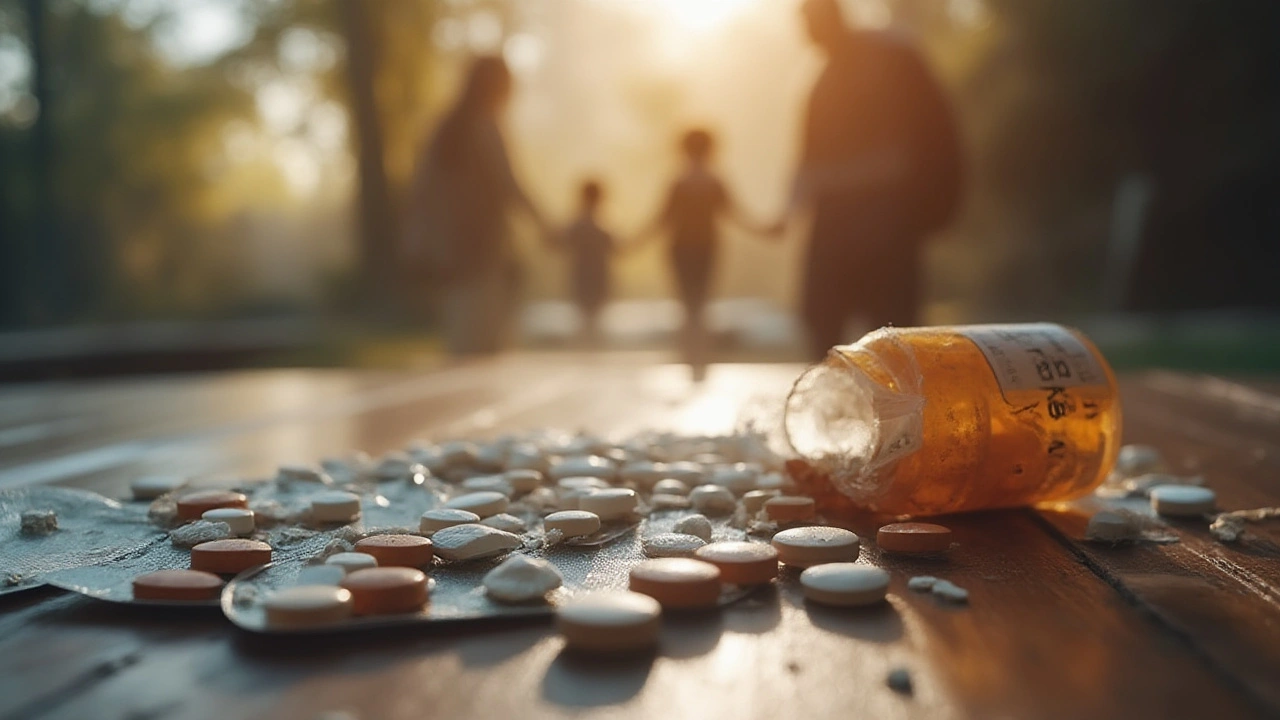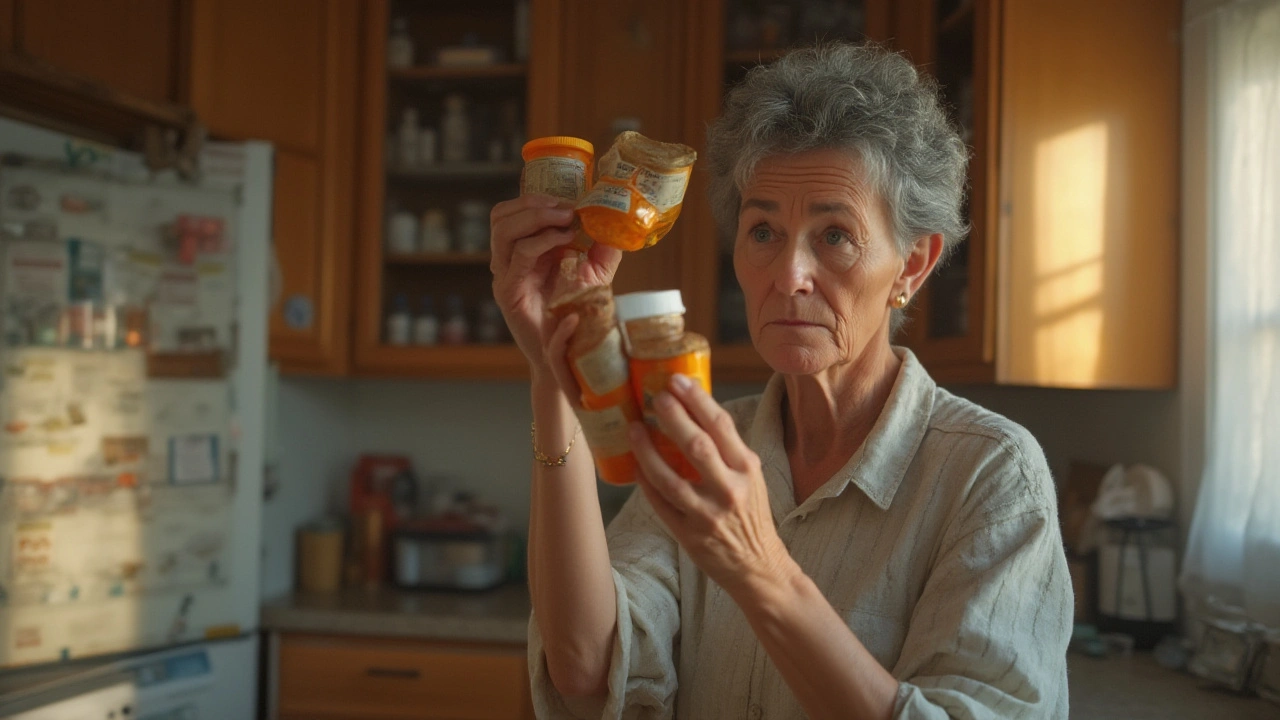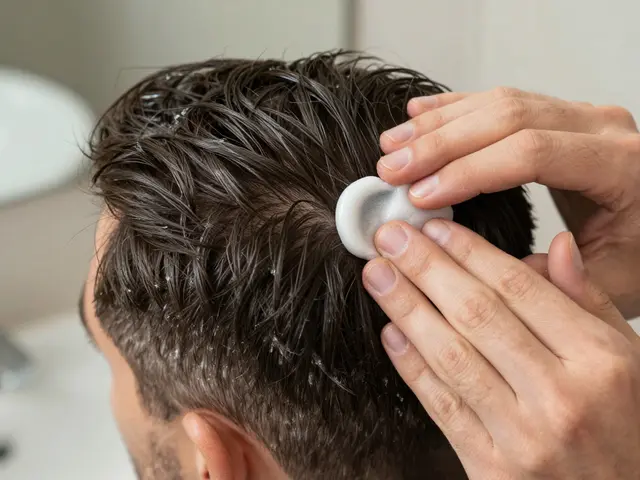That box of cough syrup in the bathroom cabinet? The painkillers hiding in your first aid bag since that one disastrous hiking trip? Admit it, most of us have a mini-pharmacy at home that’s not exactly up to date. But what’s the real deal with using expired medications? Could popping last year’s allergy tablet do more harm than good—or is it just a sneaky way the industry gets you to toss and buy more? Most people have no clue. Some even gamble with years-old pills during desperate late-night headaches, with only the faintest idea of what’s at stake.
What Does "Expired" Mean in Medicine?
Expiry dates on medical packaging aren’t random; they’re set by pharmaceutical companies based on how long they’ve tested a drug’s chemical stability. During manufacturing, companies are required by the FDA to determine the outmost date their drug will still be effective—usually through something called accelerated stability testing, where the drug is stored in harsh conditions to see how quickly it degrades. This date isn't when a pill suddenly becomes poison, but when it can no longer be guaranteed to work as promised.
In the United States, the FDA requires an expiration date on all medications, whether sold over the counter or by prescription. The system got stricter in the 1980s, after a series of cases where ineffective drugs led to medical complications. Of course, there’s a margin of safety cooked into those dates, because no one wants a medication to fail prematurely. Plus, studies like one from the Department of Defense “Shelf Life Extension Program” found that many drugs can maintain their strength past the expiration—sometimes for years—if stored perfectly. Still, that’s not the same thing as a green light to ignore labels. Even if it doesn’t spoil instantly, a medicine’s composition and effects can start shifting right after the expiration date passes, especially if the drug is sensitive to heat, light, or humidity.
The bigger issue with taking expired meds isn’t always what happens instantly, but rather what you can’t see: invisible chemical changes may mess with the way the medication works, making it unreliable in a crisis, or sometimes, flat-out unsafe. You wouldn’t drink sour milk just because it looks okay. So why gamble with your body’s health?
Risks of Taking Expired Medications
A common myth says expired drugs are just “less strong”—like a day-old coffee, maybe stale, but not harmful. That isn’t always the case. Scientists have published cases where certain expired medications have caused real harm. Here’s a table summarizing some facts you probably don’t see on TikTok or medicine cabinets:
| Drug Type | Possible Problem After Expiry | Known Case/Example |
|---|---|---|
| Tetracycline (antibiotic) | Toxic breakdown products, kidney damage | Reported “Fanconi syndrome” cases in the 1960s and later |
| Insulin | Loss of potency, poor glucose control | FDA warning: never use expired insulin |
| Nitroglycerin | Loses strength quickly, fails to treat chest pain | Documented ER cases of heart patients affected |
| Liquid antibiotics | Spoil faster, bacteria or mold contamination | Pediatric cases reported in New York hospitals |
| Eye drops | Bacterial growth, eye infections | CDC alert after outbreaks in 2022 |
Every expired drug is a little chemical experiment. Sometimes, the results are harmless. Other times, you could get less of the active ingredient, making treatment ineffective—or, worse, get the wrong effects altogether. Some pills, like aspirin, break down into acetic acid, which just smells like vinegar, but hardly helps a headache. Then there are those like tetracycline, a certain class of older antibiotics, that can actually create toxic byproducts.
Particularly concerning are injectables, inhalers, and liquid medicines. They lose their punch fast and can easily get contaminated. For life-or-death meds—think diabetes or heart medications—using a dose that’s even a little too weak can mean the difference between a normal day and a hospital dash. And if you were thinking about sharing those expired drugs with someone else “just in case,” bad idea. Drug breakdown isn’t always visible, and two people can react very differently: what’s an upset stomach for you could send someone else into anaphylactic shock.
It’s also worth noting that once a blister is opened, or a bottle is uncapped, “the clock” speeds up. Temperature and humidity variations, especially in classic New York bathrooms, are enemies of medicine integrity. That means the date on the label only applies if the drug was stored exactly right. Spoiler: almost none of us do this perfectly.

Signs You Shouldn’t Use a Medicine—Expired or Not
Sure, there’s the date, but many meds come with their own red flags that say, “Toss me!” If you see tablets crumbling, liquids separating, or weird smells rising up, walk away. Changes in color or clarity are your biggest warning signs. If a cream smells off, a pill bottle looks foggy, or a syrup has gone cloudy, trust your instincts and throw it out. Sometimes, the risk isn’t invisibility, but the really obvious stuff—odor, mold, or even a slight taste change (not that you should taste-test drugs, obviously).
Even “safe” looking drugs can hold surprises. An opened eye drop bottle can breed bacteria, which you then drip into your already-sensitive eye. Ouch. Reconstituted antibiotics (the powder ones you mix with water, usually for kids) spoil quickly after mixing. They’re practically a Petri dish waiting for trouble. If something has been open for months, even if technically not expired, best not to risk it.
How about specific categories? For anything meant for heart conditions, epilepsy, immune suppression, or serious infections, it’s non-negotiable: fresh, potent medication is the rule. Same with asthma inhalers—expired ones might feel normal, but their dose could be a dud, which is the last thing anyone needs during an attack. Also, pay attention to prescription labels. Pharmacists sometimes put a “discard after” date separate from the manufacturer’s expiry, especially when they’ve repackaged things or mixed compounds. Trust this date; beyond that, there’s no insurance policy for your health.
How to Store, Track, and Properly Dispose of Medications
Okay, so you’re ready to Marie Kondo your medicine drawer. But how? First, stop storing meds in the bathroom – it’s humid and hot, making it the worst place possible for drug safety. Go for a cool, dry, dark spot—think of closets, top shelves, or those hard-to-reach cabinets above the fridge.
Use a permanent marker to add the date you first opened or mixed liquid meds right on the label. This helps in tracking freshness, especially if your prescriptions come in big bottles. When you get your medicine, ask your pharmacist about shelf life, especially for things like reconstituted antibiotics, eye drops, and anything you don’t use regularly. Many pharmacists have printouts or stickers that make organizing easier.
Let’s walk through the best way to dump the expired stuff:
- Check for drug take-back programs: Pharmacies, local police stations, and certain city events (New York hosts National Prescription Drug Take Back Day every April and October) will collect your old pills and dispose of them safely. Search the DEA’s database for the nearest spot.
- If you can’t get to a drop-off, mix your old pills (never crush) with unappetizing stuff—think coffee grounds, cat litter, or dirt. Put the whole mess in a plastic bag, seal tight, and trash it.
- Never flush medicines down toilets unless the packaging says it’s specifically safe to do so. Some drugs contaminate water supplies, and wastewater plants aren’t designed to filter them out. New York City’s water is famous for its flavor; let’s not turn it into cough syrup, too.
- Black out personal info on the label before tossing empty bottles in the recycling to stay on the safe side.
It’s smart to do a “med check” twice a year, maybe tie it to daylight saving time changes, like you would with smoke detectors. Check all bottles for expiry, open date, condition, and storage. Restock basic over-the-counter essentials only when necessary, and resist the urge to squirrel away old prescription meds “just in case.” They’re not treasures—dangerous clutter, plain and simple.
If you’re ever unsure about a med—whether it’s safe, valid, or starting to look sketchy—pharmacists are your go-to. The good ones love answering questions and would rather you play it safe than guess wrong. Remember, when it comes to your health, trust science, not superstition or TikTok hacks.
The short answer to the big question? Yes, expired drugs can be harmful—sometimes low-key, sometimes dramatically. Your future self will thank you for keeping only what’s fresh in your medicine cabinet. Don’t play pharmacy roulette with your body. Prescription, over-the-counter, doesn’t matter; if it’s out of date, show it the door, not your digestive system.






